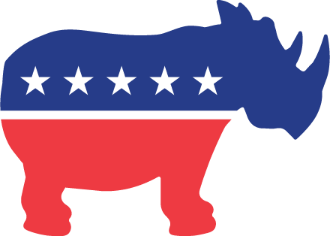For all practical purposes, there's no such thing as a third party. Any political system which has an executive elected by a general vote will evolve into a two party system.
That is not true. The real reason why third parties are not viable is the "first past the post" system with single member districts in state legislatures and House of Representatives. A proportional system, where a minor party would get the seats commensurate with their share of votes would make minor parties viable, even if they would not (at least not regularly) challenge for chief executive.
This system would be a great improvement over what we have now, but also over the parliamentary system. In a parliamentary system, the executive is elected by the legislative. That means the government can ram through everything they want as long as the legislators stay on board. If the government fails in passing a major law, the government usually collapses.
On the other hand in the US, president is independently elected, but the chambers of the Congress are controlled by either his party or the other one. If he does not control both chambers, there can be paralysis.
Enter proportional representation in the House, with independently elected president (push through popular vote since we are reforming the system). It would be very unlikely under that system that either party would control the House outright. So the president is unlikely to have his party control the House - he will have to deal with minor parties to pass legislation or get stuff approved - but neither will one party be able to block everything.
There will be a knock-on effect. The parties will now be viable to have actual power and influence and voting for them in House elections will no longer be a wasted vote. So they will get more support, more money and could challenge things like Senate seats, governorships and - if both parties put forward unpopular candidates like they did in 2016 - even the presidency.
In US politics, anyone who can't find a comfortable seat in either of the main parties is relegated to the "I'd rather be right than exercise any influence over anything" party.
That is true. But it has to do with the medieval FPTP/single member district system rather than electing the president independently.

